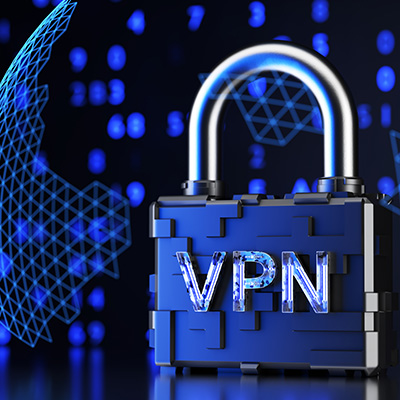Don?t Take Any Chances: Get a VPN Today

Encryption
The primary technology at work with a VPN is encryption, keeping any data secure while it?s moving to or from your network. With this encryption in place, it becomes much more difficult for an unauthorized user to steal or snoop on your data.
Data Integrity
VPNs can also ensure that your data?s integrity is sound. When it gets sent over an encrypted connection, you can know with confidence that it hasn?t been tampered with. The way this is guaranteed is through a technology called cryptographic hash functions.
Anonymity
VPNs can hide your real IP address, replacing it with your VPN server?s IP address. This makes your online activity anonymous, thereby preventing websites, advertisers, and threats from tracking what you do on the Internet. It?s a great way to protect your privacy.
Secure Tunneling
A VPN can make a secure tunnel for your data to pass through on its way to its destination, allowing it to stay safe even on the public Internet. This means you can use unsecured networks without fear of your activity being monitored or tracked.
Protection on Public Wi-Fi
Connecting to a public wireless network can be dangerous, as anyone can use it. A VPN effectively protects you while you are using it, keeping others from interfering with your work.
Bypassing Geo-Restrictions
Geo-restrictions aren?t necessarily a security issue, but they are inconvenient for when you want to access specific content that might not otherwise be available in your region. If you need to access this content anyway, better to do it securely.
Privacy
VPNs can help to preserve privacy by concealing online activity from your Internet Service Provider. This means that your ISP won?t be able to monitor or log your web browsing, or sell it to interested parties.
With a VPN, you can significantly improve both your personal and business-related data security. However, they are not created equal, and a solution that might work for one person will not work for another, especially not for a business. To learn how you can keep your business safe with a VPN, give us a call at (603) 889-0800 today.

